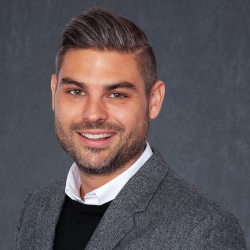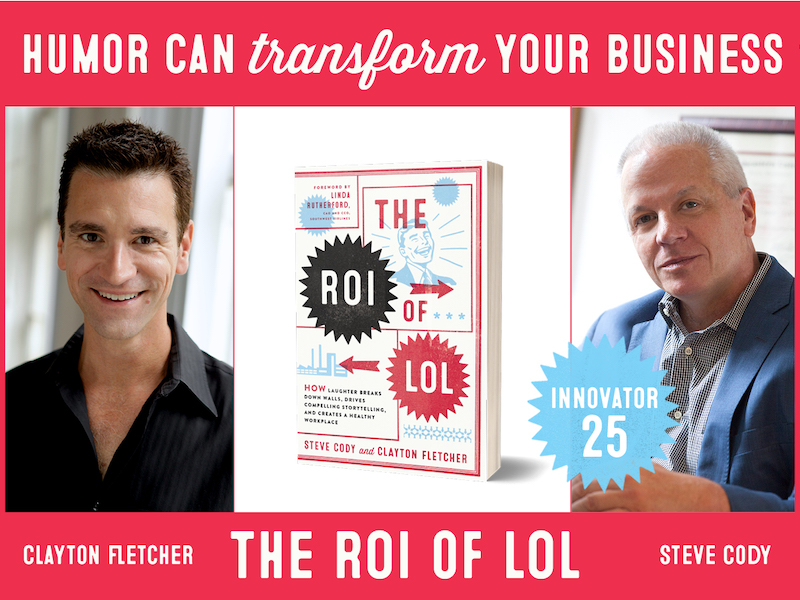GCI Health 28 Jun 2019 // 12:25AM GMT

By: Trey Watkins, MPH
Senior Vice President, Global Health & Corporate Responsibility, GCI Health

June is one of my favorite times of year. Warmer temperatures hint at the beginning of summer, and the annual reemergence of the rainbow as a cultural phenomenon ushers in a season of Pride. Wherever you turn, it seems, you’re greeted by the international sign of LGBTQ+ inclusion – from gay bars to the windows of boutiques, painted crosswalks and everything in between. Even my Uber crawls along a rainbow-lit path as I watch it arrive from the screen of my phone.
This year, as we mark the 50th anniversary of the Stonewall Riots that sparked it all, we’re reminded just how different things looked at a time when the very act of being gay in public was cause for police raid and arrest. How it must have felt on that fateful June night in 1969 when New York City police raided the now-famed West Village venue – more a communal gathering space than watering hole – and began arresting patrons and employees for violating the state’s gender-appropriate clothing statute.
Five decades later, we too often forget that the Pride we enjoy today was born out of a fierce resistance that led to six days of riots, fueled by a group of brave individuals who stood up, spoke out and changed the course of history forever. Each year, I wonder what the LGBTQ+ pioneers who led the riots of 1969 would think of our modern-day Pride celebrations. Are we doing justice to those on whose very shoulders we now stand?
The Pride narrative continues to evolve 50 years later. Led by celebrities and public officials, colorful parades fill our streets in celebration. Little ones, faces painted, tower over the crowds, carried on the shoulders of their moms or dads for whom they excitedly wave rainbow flags of support. And corporate partners increasingly lend their brands for purpose to align with the cause. While some simply pay lip service by wrapping their products in rainbows in hopes of expanding market share, others succeed in exemplifying a true spirit of inclusion.
In many ways, our world is significantly different from what it was in 1969. The LGBTQ+ community is represented in society in increasingly public and dynamic ways. In Mayor Pete, we now even have the first openly gay presidential candidate in our country’s history. A new generation is claiming their sexual and gender identities earlier than before, coming of age in a time when same-sex marriage and families are commonplace. And pre-exposure prophylaxis, or PrEP, offers higher levels of protection than ever thought possible against a virus that claimed a generation of gay men that came before.
Growing up as a gay boy in the South, I never dreamed I would one day see the streets of my neighborhood swell to capacity for World Pride. I could only imagine a world in which I would be allowed to stand in front of my family and legally marry my husband. And when I came out in my early twenties to parents with concerns about the professional advancement of their gay son, I don’t think either of us could envision the support I would receive along the way, or that I would one day type this very article from an office dripping in rainbow paraphernalia.
My story is not unlike many I know. But it’s vastly different to far too many. While we continue to see progress in many parts of the world, most recently in Botswana and Ecuador, recent months have also seen archaic bans on homosexuality upheld by the governments of Brunei and Kenya. Same-sex relations remain illegal in nearly 70 nations around the world and are legally punishable by death in 13. And here in the U.S., a string of brutal assaults has taken the lives of at least 10 trans sisters that have been documented since January, while a recent survey by The Trevor Project highlights that 39% of LGBTQ youth have considered suicide in the past year.
This reminds us that our history of resistance and perseverance is not only timely – it’s necessary. When shifting political winds threaten the progress we have made, our narrative has never been more important to help ground us in history and unite us in inclusion.
As storytellers, we in the communications industry have a responsibility to safeguard our collective narrative so we don’t forget its origins. Our stories, our experiences, are strong tools to help to empower our communities and inform meaningful dialogue. We must speak them and protect them – not only in our designated areas but in uncomfortable spaces where we might find unsuspecting allies. Not just during the 30 days of June, but year-round.
As the world gathers in the streets of New York City this weekend for World Pride, I hope we don’t lose sight of this, of the journey so many have walked. That no matter how high the heels, short the shorts or sparkly the top, this parade was and continues to be, first and foremost, a march, a riot and a protest. So, as we dance, rejoice and celebrate, let’s do so in defiance, resistance and solidarity. In honor of a still-unfolding story with so much further to go.


































.jpg)














